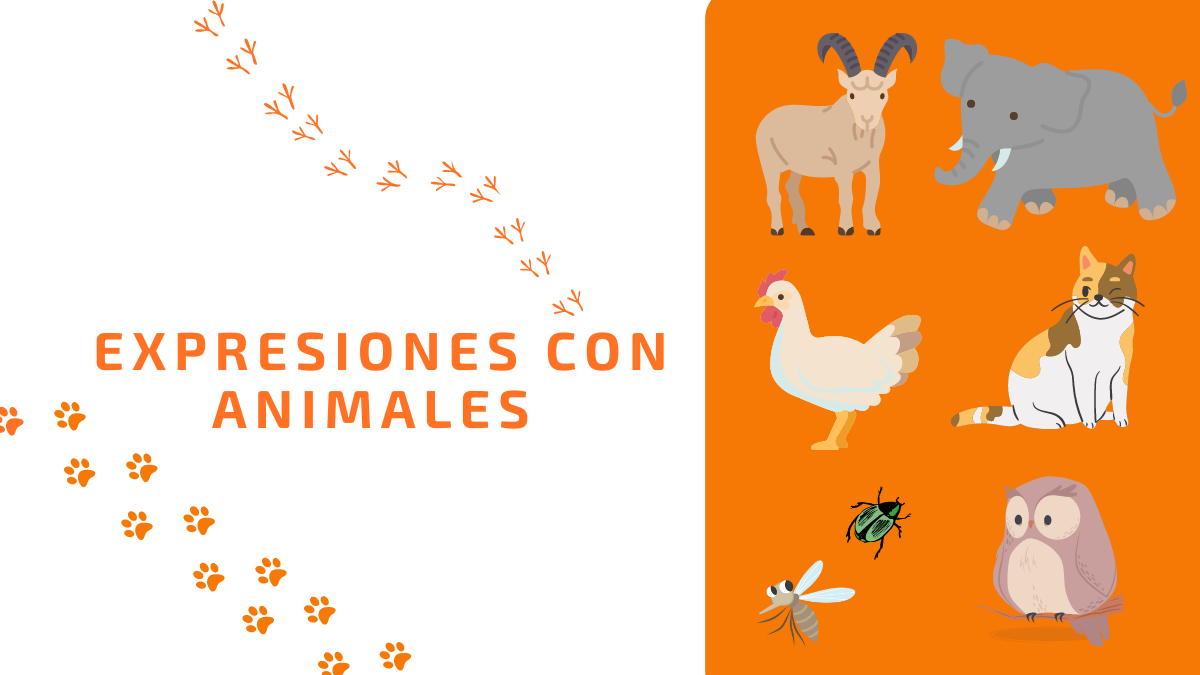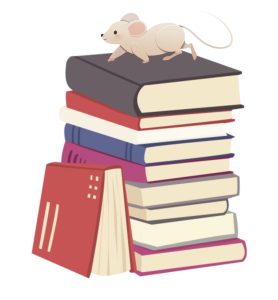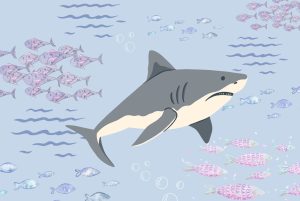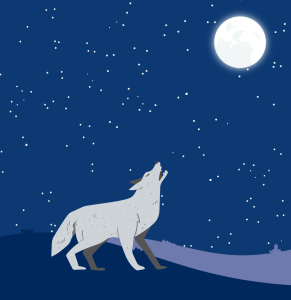Animal Expressions
Phrases and idiomatic expressions related to animals are very common in the colloquial language of many cultures. Some of them have a very ancient origin, dating back to times when human life was closely linked to nature and animals.
In this article, we will present some of the most popular animal-related phrases and idiomatic expressions, along with their meanings and some interesting facts.
“To be like a goat”
This expression is used to refer to someone who is mad or out of their mind. The origin of this expression dates back to ancient times when goats were believed to be wild and erratic animals, capable of acting unpredictably.
“To be a bookworm”
This phrase is used to describe a person who enjoys reading a lot and spends much time in the library. The origin of this expression is the belief that mice are considered very intelligent and clever animals.
“To have an elephant’s memory”
This expression is used to describe someone who has a very good memory and can remember things for a long time. The origin of this phrase dates back to the popular belief that elephants have a highly developed memory and can remember things for years.
“To be a chicken”
This expression is used to describe someone who is cowardly and lacks bravery, like a chicken easily scared. It can also be used negatively to describe someone who avoids risky or challenging situations.
“To be a greenhorn”
This phrase is used to describe someone who is a novice or inexperienced in some activity. The origin of this expression dates back to the belief that green dogs were imaginary animals that only appeared in certain situations.
“To be a strange bug”
This expression is used to describe someone who is very different or peculiar. The origin of this phrase dates back to the belief that strange bugs were animals with strange and unique characteristics.
“To be like a fish in water”
This expression is used to describe someone who feels very comfortable in a particular situation. The origin of this phrase comes from the fact that fish feel very comfortable in water, their natural habitat.
“To be a big fish”
This phrase is used to describe someone who has a lot of power or influence in a group or in a particular situation. The image is that of a big and fat fish dominating its aquatic environment.
There’s also the expression “to have a fish’s memory“, which is used to refer to people with bad memory.
“To be like a sardine in a can”
This expression is used to describe someone who is very tightly or uncomfortably packed in a confined space. The origin of this phrase goes back to the image of sardines in cans, which are usually packed tightly in the tin.
“To give a cat for a hare”
This expression is used to describe a situation where someone has been deceived or swindled. The origin of this expression dates back to the Middle Ages when unscrupulous merchants sold cats instead of hares.
Cats looked very much like hares when covered in fur, so deceived buyers only discovered the deceit after the purchase.
“To be a dead mosquito”
This expression is used to describe someone who appears to be very innocent and docile, but who is actually cunning and malicious. The origin of this expression goes back to the popular belief that flies are seemingly harmless animals but can actually carry diseases and cause serious harm.
Moreover, there are also idiomatic expressions that use animals to refer to human characteristics or behaviors. An example of this is the expression “to have a head like a bull“, which is used to refer to people who are stubborn or headstrong.
We also find the expression “to have butterflies in the stomach“, which is used to refer to the feeling of nervousness or excitement before an exciting situation, like a date or an important presentation. There’s also the expression “tingling in the legs“, which refers to a feeling of restlessness or impatience.
“To be like an owl”
This expression is used to describe someone who is awake and alert at night, like an owl. It can also be used to describe someone who is in a dark place and seems capable of seeing everything, like an owl with good night vision.
“To be a lone wolf”
This phrase is used to describe someone who prefers to work or live alone, without the help or support of others. The image is that of a wolf, an animal that usually lives in packs but can also live alone and be very independent.
“To be a pack mule”
This expression is used to describe someone who works a lot and carries many responsibilities, like a donkey carrying a heavy load. Sometimes it can be used negatively to describe someone who allows themselves to be exploited and works too much without receiving enough compensation.
“To have eagle eyes”
This expression is used to describe someone who has excellent vision and can see very small details from a great distance. The image is that of an eagle, an animal with sharp vision that can locate small prey from great heights.
“To be a snake”
This phrase is used to describe someone who is poisonous or malicious, like a venomous snake. It can also be used to describe someone who is clever and manipulative, like a snake that silently slithers.
“To be the workhorse”
It means to be the person responsible for doing the majority of the work in a project or task.
“To be an octopus”
It is used to describe someone who has many skills or tasks to handle at the same time.
“To be a vulture”
It refers to someone who takes advantage of another person’s situation for their own benefit.
In addition to these common idiomatic expressions, each language and culture has its own phrases and proverbs related to animals. For example, in Spanish, we have the proverb “cría cuervos y te sacarán los ojos“, which means that negative actions carried out may have serious consequences in the future.
In English, we have the expression “let the cat out of the bag“, which means to reveal a secret or confidential information. In French, we have the expression “il pleut des cordes“, which translates literally as “it’s raining ropes” and is used to refer to a heavy rain.
As we can see, animal-related idiomatic expressions are an important part of colloquial language in any language. Through them, we can find a reflection of the relationship that different cultures have had with animals over time.
Moreover, these expressions allow us to better understand colloquial language and enrich our communication with more varied and colorful expressions.
What are you waiting for to come to our Spanish classes to learn these expressions?








There are no comments on Idiomatic Expressions with Animals